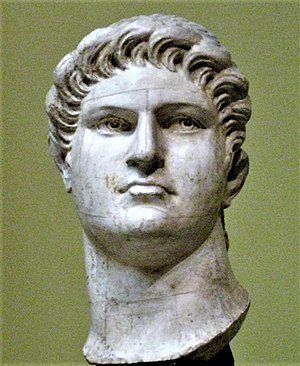THERE WERE bills and acts in relation to religious conversion even before the independence. Instances are the Raigarh State Conversion Act of 1936 and the Udaipur State Conversion Act of 1946. These laws aimed at eliminating the rural and tribal rights of freedom to conscience and religion.[1] After independence, there have been at least five states (Madhya Pradesh, Orissa, Arunachal Pradesh, Tamil Nadu, and Gujarat) that have enacted laws to either curtail or cease conversions. The following section is an account of the Freedom of Religion Acts enacted by States of Orissa, Madhya Pradesh, Arunachal Pradesh, Tamil Nadu, and Gujarat to check the tide of religious conversions and problems arising from it. The Gujarat Law and parliamentary affairs minister Ashok Bhatt, recently, has referred to these laws as anti-conversion laws.[2]
- The Madhya Pradesh Freedom of Religion Act of 1968
 This anti-conversion law was enacted in face of allegations that the Christian Missionaries were using lure and force for religious conversions. In 1954, the Niyogi Committee set up by the Congress government in Madhya Pradesh accused Christian missionaries of creating ‘a state within a state’ and observed that the ‘philanthropic activities of Christian missionaries are a mask for proselytization.’[3] The Sangh Parivar also alleged that the missionaries were promoting political dissent in the State.[4]
This anti-conversion law was enacted in face of allegations that the Christian Missionaries were using lure and force for religious conversions. In 1954, the Niyogi Committee set up by the Congress government in Madhya Pradesh accused Christian missionaries of creating ‘a state within a state’ and observed that the ‘philanthropic activities of Christian missionaries are a mask for proselytization.’[3] The Sangh Parivar also alleged that the missionaries were promoting political dissent in the State.[4]The Madhya Pradesh Assembly rejected the Freedom of Religion Bills of 1958 and 1963. However, this bill was passed in 1968 as ‘The Freedom of Religion Act.’[5]
The Madhya Pradesh ‘Freedom of Religion Act’ requires that a convert produce a legal affidavit that s/he was not under any pressure, force, or allurement to convert but was converting by own will and desire after evaluating the religion properly.[6] Also according to this law, anyone who writes or speaks or sings of ‘divine displeasure’ (with an intention to induce forced conversion by means of threat) can be imprisoned for a period of up to two years and fined up to five thousand rupees.[7]
Evidently, this law is an open violation of the right to freedom of religion that includes the freedom to propagate one’s religion. What is ‘divine displeasure’ in one religion may not be ‘divine displeasure’ in another religion. However, without propagation of religion, this cannot be known to a person belonging to another religion. Moreover, if there is no propagation of such fundamentals of religion, which distinguish one religion from the other, then there can be no conversions. Therefore, a law prohibiting the preaching of a fundamental tenet such as ‘divine displeasure’ is an attempt to prevent the citizen from a proper exercise of his/her right to freedom of religion.
- The Orissa Freedom of Religions Act of 1968
 The state of Orissa enacted the Orissa Freedom of Religions Act in 1968. It stated that “no person shall convert or attempt to convert either directly or otherwise any person from one religious faith to another by the use of force or by inducement or by any fraudulent means nor shall any person abet any such conversion.”[8] Contravention of this law was punishable with imprisonment of up to one year and/or a fine of up to Rs 5,000. In the case of a minor, a woman, or a person belonging to a Scheduled Caste or Tribe, the punishment was up to two years of imprisonment and the limit of the fine raised to Rs. 10,000.[9]
The state of Orissa enacted the Orissa Freedom of Religions Act in 1968. It stated that “no person shall convert or attempt to convert either directly or otherwise any person from one religious faith to another by the use of force or by inducement or by any fraudulent means nor shall any person abet any such conversion.”[8] Contravention of this law was punishable with imprisonment of up to one year and/or a fine of up to Rs 5,000. In the case of a minor, a woman, or a person belonging to a Scheduled Caste or Tribe, the punishment was up to two years of imprisonment and the limit of the fine raised to Rs. 10,000.[9]The Orissa High Court, however, struck down the Act as ultra vires of the Constitution[10] on the ground that the state legislature did not have the right to legislate matters of religion.[11] The same year, the state of Madhya Pradesh also enacted the Madhya Pradesh Freedom of Religion Act as seen above. However, the Madhya Pradesh High Court, in contrary to the Orissa High Court, negated the challenge of some Christians that the Act violated their fundamental right as provided under Article 25 of the Constitution. The decisions of both the Courts were challenged before the Supreme Court. The Supreme Court upheld the decision of the Madhya Pradesh High Court and reversed the decision of the Orissa High Court.[12] The Supreme Court ruling by a full bench said:
We find no justification for the view that Article 25 granted a fundamental right to convert persons to one’s own religion. It has to be appreciated that the freedom of religion enshrined in the Article is not guaranteed of one religion only, but covers all religions alike and it can be properly enjoyed by a person if he exercises his right in a manner commensurate with the like freedom of persons following other religions.
What is freedom for one is freedom for others, in equal measure; and there can be no such thing as a fundamental right to convert any person to one’s own religion.[13]
Ruma Pal notes that this decision of the Supreme Court has been justifiably criticized for its failure in distinguishing between conversion by force and conversion by persuasion.[14] Even advertisements make use of the art of persuasion. The right of freedom to choose one’s own religion has no meaning if the very means of choice were removed. Choice between religions is unthinkable in the absence of an intellectually persuasive propagation of religion. Thus, the Supreme Court’s ruling that disregards the fundamental right to freedom of propagating one’s own religion is unjustifiable. As H.M. Seervai notes:
Art. 25(1) confers freedom of religion—a freedom not limited to the religion in which a person is born. Freedom of conscience harmonizes with this, for its presence in Art. 25(1) shows that our Constitution has adopted a “system which allows free choice of religion.” The right to propagate religion gives a meaning to freedom of choice, for choice involves not only knowledge but an act of will. A person cannot choose if he does not know what choices are open to him. To propagate religion is not to impart knowledge and to spread it more widely, but to produce intellectual and moral conviction leading to action, namely, the adoption of that religion.[15]
Thus, the Orissa Freedom of Religions Act of 1968 cannot at all be considered a Freedom of Religions Act since it takes away the very means of freedom to choose and practice one’s own religion.
- The Arunachal Pradesh Freedom of Religion Act of 1978
 This Act was enacted to prevent the tribals of Arunachal Pradesh from converting to other religions. It reads:
This Act was enacted to prevent the tribals of Arunachal Pradesh from converting to other religions. It reads:3) Prohibition of forcible conversion.
No person shall convert or attempt to convert, either directly or otherwise any person from indigenous faith by use of force or by inducement or any fraudulent means nor shall any person abet any such conversion.
4) Punishment of Contravention of the Provision of Section.
Any person contravening the provisions contained in Section 2, shall without prejudice to any civil liability, be punishable with imprisonment to the extent of two (2) years and fine up to ten thousand (10, 000) rupees. (i) whoever converts any person from his indigenous faith to any other faith or religion either by himself performing the ceremony for such conversion as a religious priest or by taking part directly in such ceremony shall, within such period after the ceremony as may be prescribed, send an intimation to the Deputy Commissioner of the District to which the person converted belongs, of the fact of such conversion in such forms as may be prescribed.[16]
Evidently, the meanings given to the word ‘inducement,’ namely ‘the offer of any gift, or gratification, either cash or in kind and also include grant of any benefit, either pecuniary or otherwise,’ in the law can dangerously affect social work by religious groups, even though their intentions are charity-oriented. Such ambiguity within the law is a clear indication of the State’s intention to restrain individuals from using their right to freedom of religion.
- The Tamil Nadu Anti-Conversion Act of 2002.
 The Tamil Nadu Anti-conversion Act of 2002 stated that ‘No person shall convert or attempt to convert directly or otherwise any person from one religion to another either by use of force or by allurement or by any fraudulent means.’[17] The immediate provocation for this Act, supposedly, ‘was the threat of hundreds of Dalits of Koothirambakkam village, near Kancheepuram, to change religion because their decades-old demand that their right to enter and worship at the common village temple be protected by the government had not been conceded.’[18]
The Tamil Nadu Anti-conversion Act of 2002 stated that ‘No person shall convert or attempt to convert directly or otherwise any person from one religion to another either by use of force or by allurement or by any fraudulent means.’[17] The immediate provocation for this Act, supposedly, ‘was the threat of hundreds of Dalits of Koothirambakkam village, near Kancheepuram, to change religion because their decades-old demand that their right to enter and worship at the common village temple be protected by the government had not been conceded.’[18]There had been great protest against this ordinance from various corners. Police arrested 10 people who were planning a mass conversion on December 6, 2002 in protest to the new anti-conversion law. About 3,000 Dalits were to be converted to Christianity and Buddhism, without applying to the local magistrate to approve their conversion in accordance to the new law, on this day according to this plan.[19] Apparently, the Dalits saw this law as violating their fundamental rights and also ridding them of the opportunity to rise. However, President of the Maharashtra branch of the Vishwa Hindu Parishad (VHP), Ashok Chowgule, congratulated the Tamil Nadu government on the ordinance. He said conversions cause social tensions.[20] The State Council of the All-India Democratic Women's Association also opposed the bill as being unjustified and opposed to the rights of minorities and Dalits ensured in the Constitution.[21]
On May 7 2004, the Prohibition of Conversion Act Protest Committee appealed to the electorate to vote for the Dravida Munnetra Kazhagam-led Democratic Progressive Alliance (DPA). The DMK was said to have in its manifesto a promise to repeal the Anti-conversion law.[22] However, soon after the defeat of the BJP led coalition in the 2004 elections, the Tamil Nadu Government led by Jayalalitha repealed the law in June to the chagrin of many Hindu Fundamentalists and Nationalists.[23]
- The Gujarat Freedom of Religion Act.
 Soon after its victory in Gujarat the Narendra Modi government decided to accord "top priority" to the commitment given in the BJP poll manifesto and enact a law against religious conversions in the state.[24] Accordingly, the Gujarat Assembly passed the Freedom of Religion Act in March 2003.[25] It was called the Dharam Swatantrata Vidheya[26] (Freedom of Religion Act). Narendra Modi called the Act as one of the main ‘achievements’ of his government’s one year in office.[27] Evidently, anti-conversion law is a significant part of BJP agenda. The law prohibited conversion by force or inducement.[28]
Soon after its victory in Gujarat the Narendra Modi government decided to accord "top priority" to the commitment given in the BJP poll manifesto and enact a law against religious conversions in the state.[24] Accordingly, the Gujarat Assembly passed the Freedom of Religion Act in March 2003.[25] It was called the Dharam Swatantrata Vidheya[26] (Freedom of Religion Act). Narendra Modi called the Act as one of the main ‘achievements’ of his government’s one year in office.[27] Evidently, anti-conversion law is a significant part of BJP agenda. The law prohibited conversion by force or inducement.[28]All the above anti-conversion laws violate the Constitutional provision of fundamental rights to the citizens of India. Thus, it has been seen that the various anti-conversion laws are a direct contravention of the provisions given in the Constitution.
Also, the opposition of conversion is, evidently, an attempt to destroy the citizen’s right to freedom of religion and desecularize Indian society. Though it is known that this attempt is futile in this globally connected world of information explosion, yet many of the Sangh activists are actively busy in trying to stop conversions, reconvert non-Hindus to Hinduism, and make India a Hindu nation. Back in 2002, L.K. Advani, the then Deputy Prime Minister of India, told the parliament that ‘India can never be turned into a Hindu nation.’[29]
True to Advani’s statement, India can never be turned into a Hindu nation because of the educational, economical, social, and political foundation that the British and the early leaders of Independent India laid.
NOTES
[1] Ebe Sunder Raj, The Confusion Called Conversion, p. 140.
[2] ‘Anti-conversion Laws Yet To be Framed,’ The Times of India, Nov. 7, 2004, Ahmedabad.
[3] Subhash Agarwal, ‘Law, Order, & Religious Conversions’, The Financial Express, Sept. 25, 2003.
[4] Hansel D’Souza, ‘Christians Awake! The Secular Citizen’, June 1995, http://www.hvk.org/Publications/cihp/an1.html
[5] Ebe Sunder Raj, The Confusion Called Conversion, p. 140.
[6] Ibid, p. 146 & R. Domenic Savio, ‘A Descriptive Study of Prarthana Bhavan, Sanjay Koyala Nagar’, (unpublished M.A. Thesis, Acts Academy of Higher Education, 2004), p. 81.
[7] Ebe Sunder Raj, The Confusion Called Conversion, p. 142.
[8] Section 3 of the Orissa Freedom of Religions Act, 1968. As cited by Ruma Pal, ‘Religious Minorities and the Law’, Religion and Personal Law in Secular India (Bloomington: Indiana University Press, 2001), http://iupress.indiana.edu/textnet/0-253-33990-1/0253108683.htm
[9] Ibid.
[10] Ebe Sunder Raj, The Confusion Called Conversion, p. 140.
[11] Ruma Pal, ‘Religious Minorities and the Law’, op. cit.
[12] Ibid.
[13] Ebe Sunder Raj, The Confusion Called Conversion, p. 140.
[14] Ruma Pal, ‘Religious Minorities and the Law’, op. cit.
[15] As cited by Ruma Pal, op. cit.
[16] Ebe Sunder Raj, The Confusion Called Conversion, pp. 141-2.
[17] ‘Anti-conversion Ordinance Decried’, The Times of India, Nov. 6. 2004, http://www1.timesofindia.indiatimes.com/cms.dll/articleshow?artid=2469800
[18] Frontline, Dec.3, 2004, p.10.
[19] ‘Crackdown Over India Mass Baptism’, BBC News, South Asia, Friday, 6 December, 2002, 04:56 GMT .
[20] ‘Anti-conversion Ordinance Decried’, The Times of India, Nov. 6. 2004.
[21] ‘Anti-conversion Bill unjustified: AIDWA’, The Hindu, Nov. 12, 2002. http://www.hinduonnet.com/2002/11/12/stories/2002111204290500.htm
[22] http://www.hindu.com/2004/05/08/stories/2004050803510400.htm
[23] http://www.hindu.com/2004/06/09/stories/2004060905050500.htm
[24] http://paknews.com/PrintPage.php?id=1&date1=2003-01-11&news2=main1
[25] http://timesofindia.indiatimes.com/articleshow/382992.cms
[26] BBC News, Tuesday, 25 February, 2003, 17:25 GMT, http://news.bbc.co.uk/2/hi/south_asia/2798771.stm
[27] http://timesofindia.indiatimes.com/articleshow/382992.cms
[28] http://paknews.com/PrintPage.php?id=1&date1=2003-01-11&news2=main1
[29] BBC News, 5 December, 2002, 19:08 GMT, http://news.bbc.co.uk/1/hi/world/south_asia/2546023.stm



